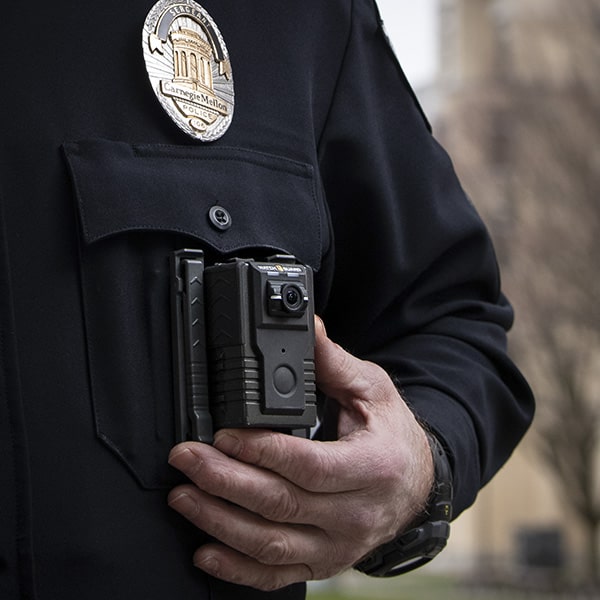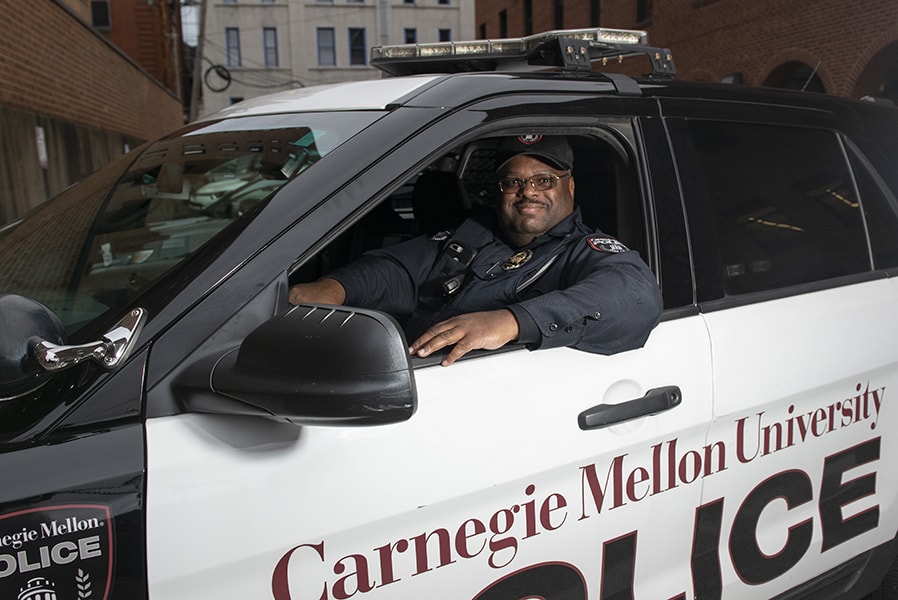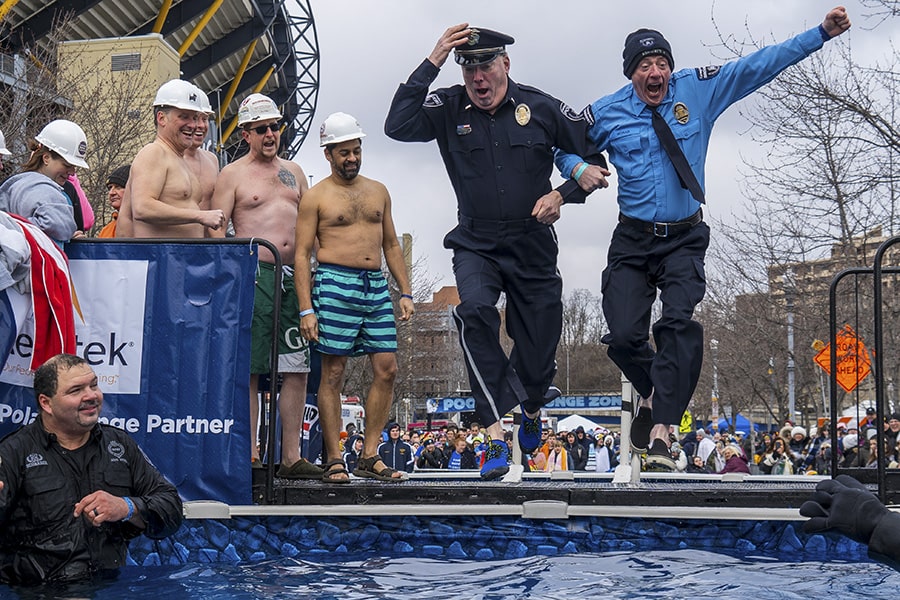CMU Expands Campus Safety Measures
Patrol officers wearing body cameras; security camera coverage increasing
Carnegie Mellon prioritizes the safety and security of the campus community.
In the past two years, CMU has added 369 new cameras to its Integrated Security Service (ISS). This installation initiative, extending over six years, aims to create a unified campus security camera system with 1,500 cameras.
"This technology will improve the effectiveness of the CMU Police force," said Daryl Weinert, Carnegie Mellon's chief of staff and vice president for strategic initiatives.
"We are committed to building greater trust, understanding and transparency between the CMU community and the CMU Police, and these technologies can be tools in helping us achieve these goals," Weinert said. "The use of cameras can result in tremendous advantages like deterring and helping to solve crimes, but there can also be concerns about their misuse, particularly as it pertains to privacy. It is important to be transparent concerning how the university intends to deploy and use these technologies."
The ISS' cameras and server are maintained by CMU's Computing Services. From the beginning, Lisa DeBellis, ISS project manager, has overseen their implementation. The CMU Police Department secures the camera data produced. The system stores footage from across campus for 31 days. The cameras are not actively monitored, meaning the majority of the recordings are deleted without ever being viewed. Patrol officers can request access to the footage from departmental supervisors to aid investigations when crimes are reported.
"We are committed to building greater trust, understanding and transparency between the CMU community and the CMU Police" — Daryl Weinert
To maintain accountability, usage of the video is tracked through logins. The centralized nature of the system allows for rapid response to both reports of crime and to the maintenance needs of the cameras. Ogden said that good policy must be implemented with modern technology when it comes to policing. "It's incumbent on police officials to not wait for something to go wrong," he said. "I think it's critical that privacy is our No. 1 concern, because as soon as you've invaded someone's privacy, you've defeated the whole goal of community service."
For Ogden, that means rejecting technologies that infringe upon privacy and civil liberties.
"Just because technology exists, doesn't make it useful for us," Ogden said. "Take facial recognition software, for example. It shows high error rates and is unnecessarily invasive, so, implementing that is out of the question."
Emma Cohron is a junior majoring in computer science. In her role as Student Body vice president, Cohron has been involved in conversations with campus police about the expanded security system.
"It's very comforting to speak to representatives from the campus police because they share the same privacy concerns as students," Cohron said.
In addition to the ISS, the CMU Police Department has purchased 20 bodycams for officers to wear on patrol.
 The new body cameras integrate with a camera system installed in CMU police vehicles. When officers hit record on either the car's camera or the body camera, both cameras start recording. The cameras also start recording every time the vehicle's emergency red and blue lights are activated. Officers have access to their own bodycam footage (except in some use-of-force scenarios), and supervisors have access to every officer's footage.
The new body cameras integrate with a camera system installed in CMU police vehicles. When officers hit record on either the car's camera or the body camera, both cameras start recording. The cameras also start recording every time the vehicle's emergency red and blue lights are activated. Officers have access to their own bodycam footage (except in some use-of-force scenarios), and supervisors have access to every officer's footage.Cohron said that students overwhelmingly support police wearing body cameras.
"We are at a place and time in our country where people have become increasingly aware of the power that the police or government have," Cohron said. "Police are people too, just like any of us, and I think body cameras add a level of comfort to all of us - knowing that there is a record of interactions which instills accountability."
Chief Ogden said that his officers also have embraced the use of body cameras.
"As techniques and technology prove themselves to be effective and useful in improving community safety and enhancing the trust between police and their constituents, then CMU will make every effort to adopt such practices and tools," Weinert said. "The CMU Police Department is dedicated to serving CMU's students, faculty, staff and visitors and establishing long-term trust with those they serve."



